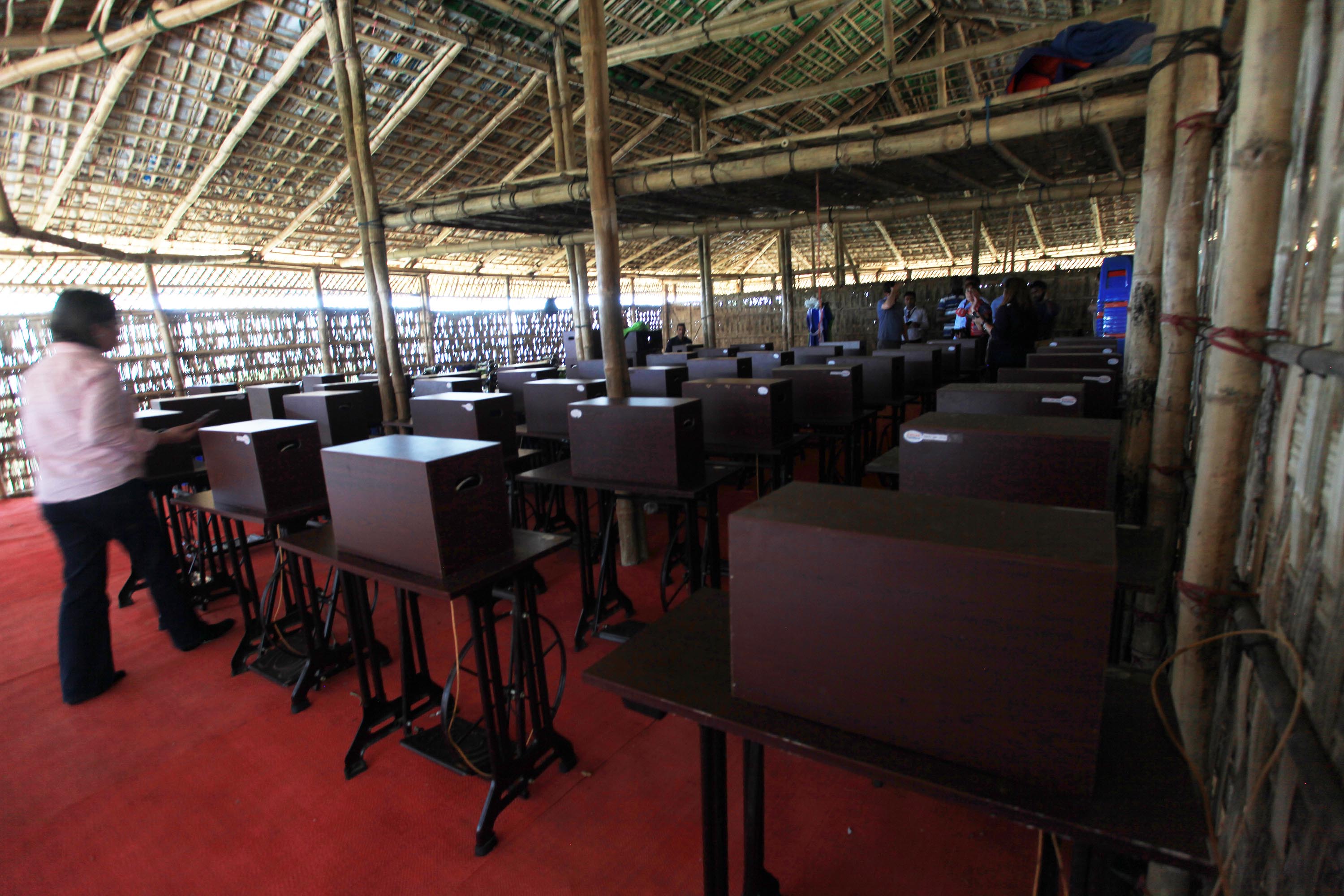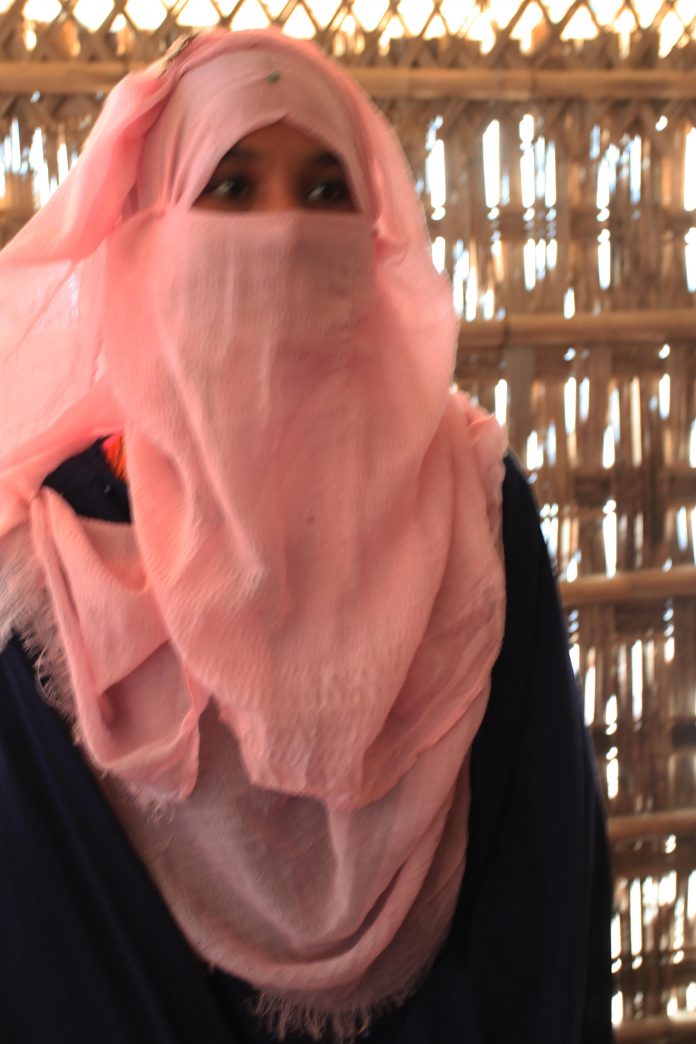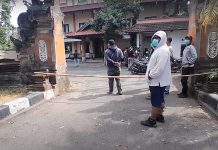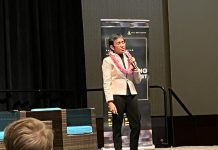NURNI SULAIMAN REPORTS FROM WORLD’S LARGEST ROHINGNYA REFUGEE CAMP AT COX’S BAZAR, UKHIYA, BANGLADESH MANAGED BY EAST WEST CENTER AMONGST INTERNATIONAL JOURNALISTS FROM 11 COUNTRIES
EXTRAORDINARY women united inside a non-permanent building. They were chattering and laughing each other closely. They were women of Rohingya refugees who came together in a place called women learning center of sewing skill at Camp 4 Block F Kutupalong, Cox’s Bazar, Ukhiya, Bangladesh. It was a sunny day in medio September of 2019.
Here, they were learning how to sewing for a basic form, later the program beneficial to them some impacts. It’s not only got a new skill more than that, it’s beneficial to their community confidence.
Adidah a woman of Rohingya refugee said that the community gave them more impacts. It helped them so much when the member faced any of problems.
“Basically the people here were benefited from the sewing center, because they did not have any effort or any kind to do inside the house. When they got opportunity to this program so they could pass the time moreover they could earn money. So they could empower themselves nor their family member,” said Adidah who acted as an organizer.
She added nobody help them to empower themselves so what they did basically they thought to help themselves when they could earn money.
“There’s a lot of woman segment and the trauma even they were usually not sharing how their (bad) experiences to the other people.”
They were also getting harassment inside the camp. “You know our house was very tiny like one house eight people living together even you wanted to go to toilet, so that’s the time we were facing the problem {…} we were not easily moved when you tried to came out the house, there’s a lot of people, the men were disturbing and teasing the girls,” said Adidah.
So, when they were united in a women community, it had empowered them with many benefit. “By this community, we could earn some money to help ourselves and our family member. We were also having a good trust to help each other. More than that, if anyone individually like if (the men) teasing us or any kind of harassment, the individual could not take that by herself but if we were together five to ten people so we could raise our voices.”
In this case, the problem was solved when they went to the shop where the men harassed their friend and told them they would complained the harassment to CIC (Camp in Charge) and it worked.
AFM Rezaul Karim Executive Director of Prantic Unnayan Society said here at the women learning center or sewing center was a Rohingya women and guard empowerment center that was initiated by Prantic Unnayan Society to empower Rohingya’s refugee women and adolescents.
“So they could resolve their conflict among them. They could claim and proper them services regularly for women and their friend. They could discuss their own issues for example gender issues while here all trainers and staffs were female, so they felt very comfort discuss their own issues with them.”
There were many beneficial thing they had here; first they could earn money from this program, second they had social life inside the camp, third it increased their level of confidence and other positive things.
“An example when they were coming to this center on the way to the center, men harassed them from a particular workshop. Later they discussed their unity to go to the workshop where the men did it, the girls had threaten them if they did it again the community would complain against CIC,” said Karim and added since that time, the ladies were protected of being harassed from the particular area. “So this was a tremendous achievement from the perspective of Rohingya community moreover they usually did not allow women to go out from their house.”
In the meantime, at the sewing center, the community got an order from the donor then they were interested to provide dresses. Later, they developed their skill to produce uniform for students both boys and girls types.
From the product, this ladies earn some money of 65 Taka (BDT) per piece. The price was 100 Taka per piece while 25 Taka for the cost production and 10 Taka for the association. It’s good for their own things that were not provided by the government or organization.
Karim said the process has ended in May but they were still coming for this community and it was good this activity has been developing their own trust and confidence, “we were thinking of having other donors then.”
He explained OBAT Helpers had begun a Sewing Machine Project that had been fully funded by HOPE International Development Agency, Canada and was being implemented with Prantic Unnayan Society (Prantic), Bangladesh.
OBAT Helpers utilizes 58 sewing machines to provide sewing training to Rohingya women and adolescent girls, through organized classes taught by a sewing instructor. The project was organized by the Rohingya Women and Girl’s Empowerment Association (RWGEA), a committee comprised of Rohingya women, who helped to arrange the logistics of the sewing class. In addition, OBAT intends to broaden the project to include handcraft training for women. These trainings were intended to provide Rohingya women with the skills necessary to produce textile products to sell in the market. The sewing program takes place in OBAT’s Women’s Empowerment Center.
At present the scope for generating income in the camps, particularly for women, was limited. Through this Sewing Project, OBAT aimed to provide Rohingya women with the opportunity to generate an income for their family through the tailoring skills they acquired in the class. This would increase their capacity to produce garments, handicrafts and other tailor-made products for sale in marketplaces. Additionally, the project aimed to provide Rohingya women with a sense of dignity and humanity by offering them empowering classes where they could learn useful skills while socializing in a safe women’s space.
It was intended that a minimum of 500 women will have benefited from the project at its completion; they would become well-established in tailoring and will be able to work on their own on personal and professional tailoring projects after the course. OBAT also provide them Women’s Digital Learning Project and Capacity Building.
Kutupalong Refugee Camp in Cox’s Bazar is inhabited mostly by Rohingya Muslims that have fled from persecution in neighboring Myanmar. It is one of two government-run camps in Cox’s Bazar, the other being the Nayapara refugee camp.
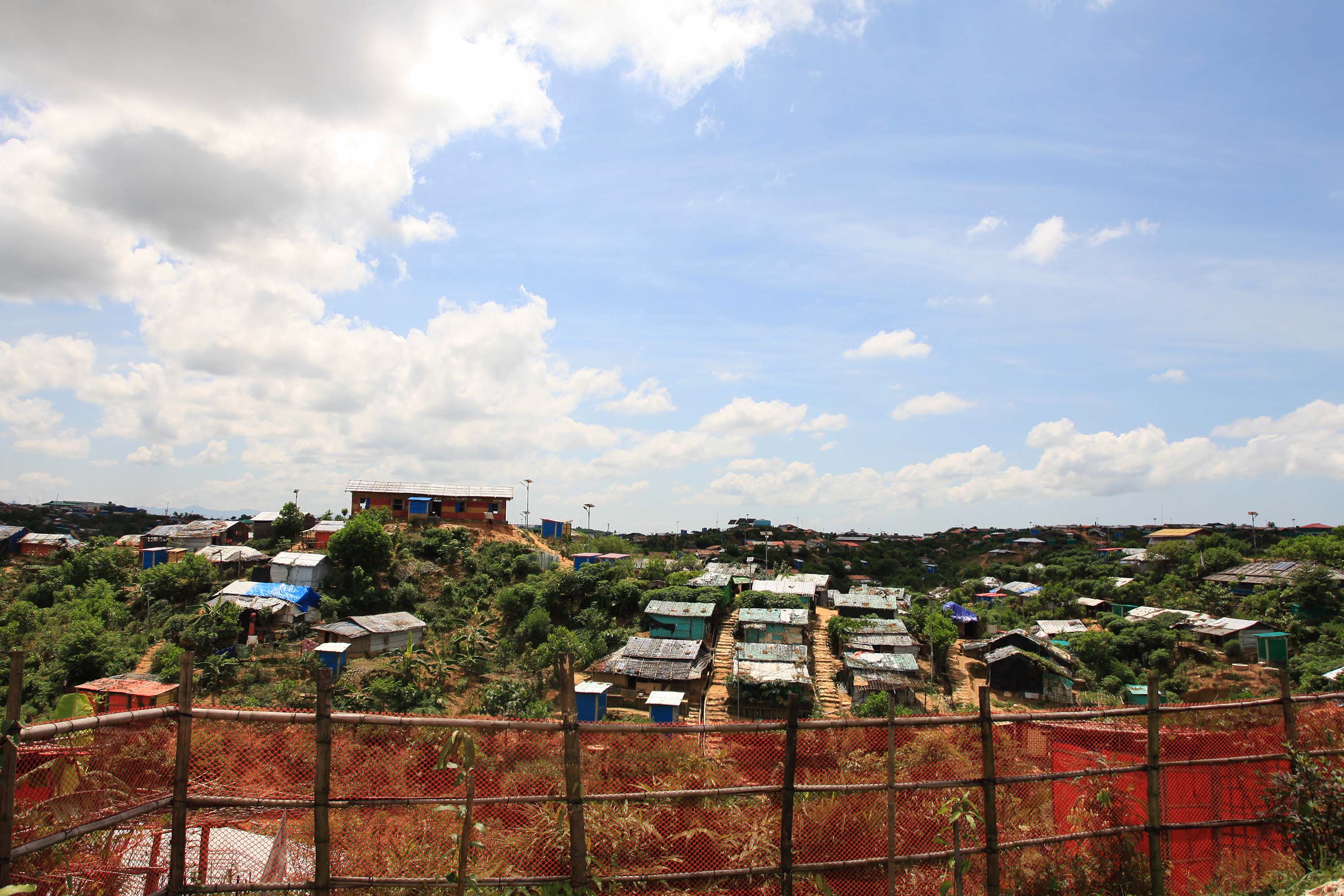
Kutupalong Refugee Camp also refers to the makeshift camps that have sprung up adjacent to the government-operated camp, although these are not officially part of the camp. The original camp and the surrounding makeshift camps have grown to become the world’s largest refugee settlement with more than 600.000 people living in an area of just 13 square km.
Amnesty International noted that more than 750 thousand Rohingya refugees fled from Myanmar and crossed into Bangladesh. This country is the main destination because the geographical location is adjacent land and hills. Refugees were dominated by women and children. This happened after the violence carried out by the Myanmar military against Muslim ethnic minorities in August 2017. During the period of displacement, their numbers increased because those who met adults were married and had children. It was recorded more than a million people living in the camp at Cox’s Bazar in the time of this writing. (Nurni Sulaiman)
